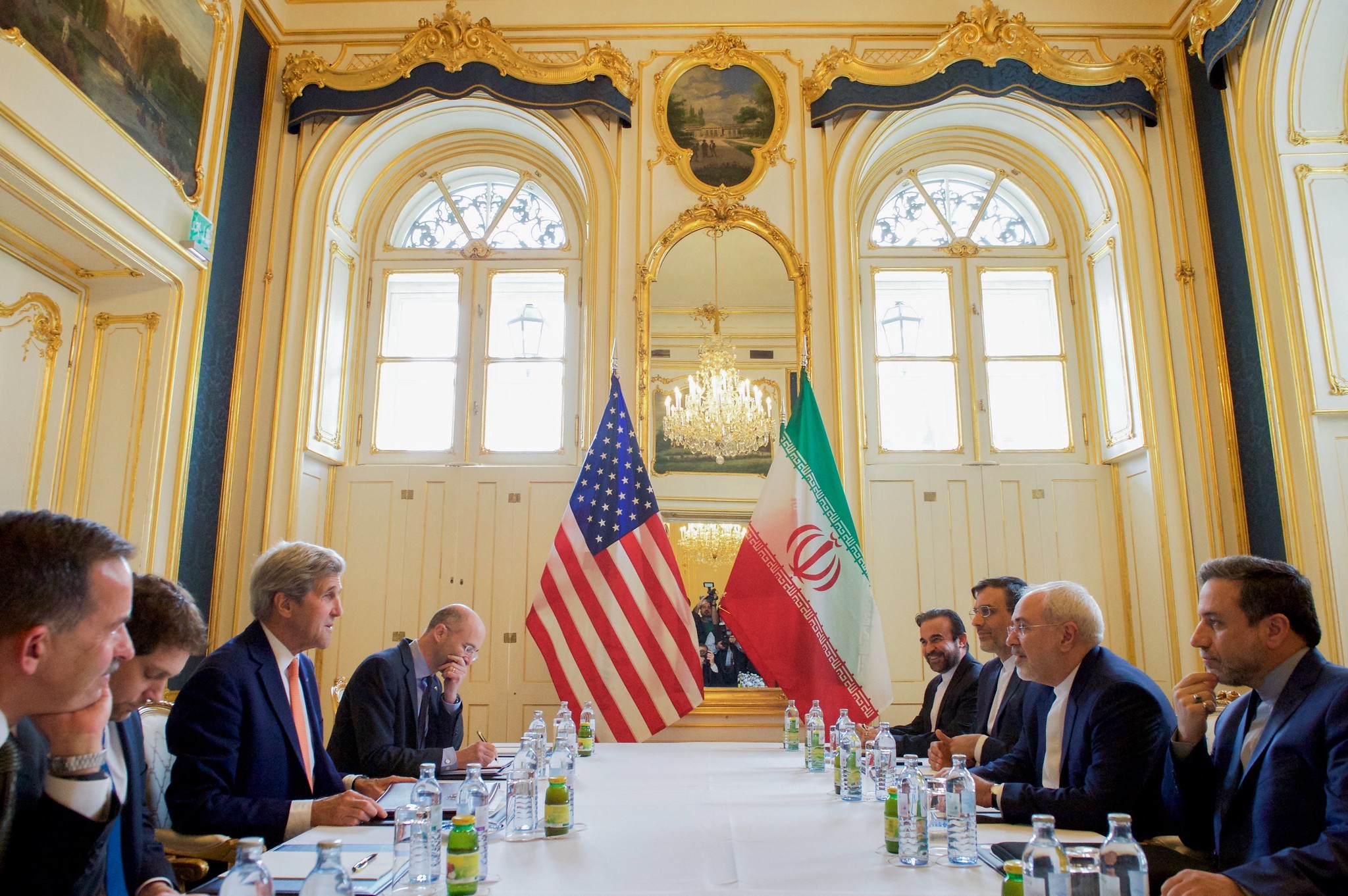 JCPOA Discussions in Vienna. U.S. State Dept. Photo
JCPOA Discussions in Vienna. U.S. State Dept. Photo
Who Will Make the First Move to Revive the JCPOA?
Secretary of State Antony Blinken stated that the United States would return to the Joint Comprehensive Plan of Action (JCPOA, also known as the Iran nuclear deal), negotiated under the Obama administration, only after Iran meets its commitments under the deal. Iran’s Foreign Minister Mohammad Javad Zarif delivered similar remarks a few days later calling the demand impractical and stating that “if the United States fulfils its obligations, we will fulfil our obligations in full.” Hopefully this back-and-forth is not an indication of a prolonged stalemate, especially as Iran has already laid out a February 21 deadline before they will begin suspending IAEA inspections. The United States and Iran are being encouraged by EU leaders to swiftly return to the original JCPOA, partied by the P5+1 (UK, France, China, Russia, U.S., and Germany), without seeking any preconditions. So, what exactly have the United States and Iran reneged on, why should they bother making good on their commitments once again, and how might they go about it?
United States. Back in 2015, billions of dollars of sanction relief was written into the JCPOA as the primary U.S. obligation. When former President Trump pulled out of the nuclear deal in May 2018, the decision was succeeded by a plethora of renewed sanctions that worked to severely hamper Iran’s economy. When announcing the decision to withdraw from the JCPOA, Trump insisted that Iran had not ceased its nuclear weapons program and said that “it is clear to me that we cannot prevent an Iranian nuclear bomb under the decaying and rotten structure of this deal.” Despite the accusation, Iran had been shown to be in compliance several times in the months prior.
Iran. After the reimposition of U.S. sanctions, Iran began exceeding the limits placed on its nuclear program which were intended to prevent weaponization. Under the JCPOA, Iran was required to reduce its stockpile of enriched uranium by 98%, cap its enrichment levels at 3.7%, limit its number of operational centrifuges to 5,060 (about one-third of what it was operating prior), designate its nuclear reactor facilities for civilian research, and allow regular inspections by the International Atomic Energy Agency. Today, world leaders are watching as Iran resumes 20% uranium enrichment at its Fordow nuclear facility, which is a stepping stone to creating weapons-grade material.
The effectiveness of the JCPOA in constraining the Iranian nuclear program is predicated upon a good faith effort by both the United States and Iran, and it is worthy of such effort. Fulfillment of obligations under the JCPOA would greatly benefit the nuclear non-proliferation regime and contribute to overall stability in the Middle East. Critics of the deal point to its weaknesses as reason enough for abandonment, such as clauses with an expiration date. However, we will be better off attempting a renegotiation of the flawed components after some effort to move towards the previously agreed upon terms. Leaders of EU party states have themselves stated that they will not put forth any recommendations for extensions or amendments until significant progress has been made in bringing Washington and Tehran back into the fold. If the original JCPOA negotiation was a struggle, renegotiation with the hope of extracting more concessions from Iran would be a herculean task. The state of affairs between the two countries is tense and the Iranian government might be more emboldened since having held firm against former President Trump’s “maximum pressure.”
To begin the process of mending the severely neglected JCPOA, Presidents Biden and Rouhani need to ensure open and honest communication about the goals at hand. Just as every good realtor knows the importance of location, the key to successful nuclear agreements will always be transparency, transparency, transparency. The fact remains, however, that someone will need to break the cycle of finger pointing in order to refuel the sputtering JCPOA. Once confidence among leaders has begun rehabilitation and there are strong measures in place to validate progress, the technicalities of returning to compliance are the easy part. The U.S. will be obligated to undo the sanctions imposed while Iran scales back its nuclear program to within the arranged JCPOA limitations. If stabilization in the Middle East is what the Biden administration wants, then acting quickly to mitigate the growing threat to nuclear security is a great first step.





